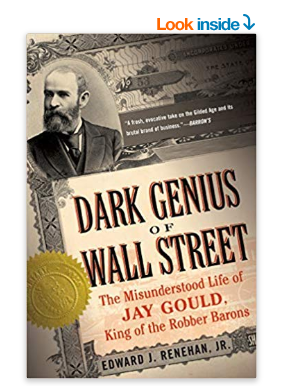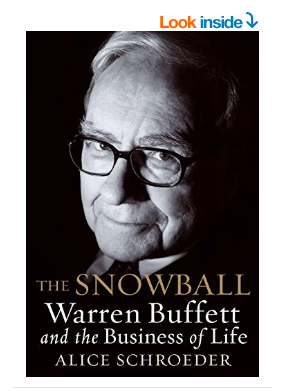Most wealth can be faked. It’s easy to rent a Lamborghini or take selfies in a 5-star hotel lobby. But, at $1 million per mile of track, you have to be rich if you want to own a railroad. Because of this, today’s article shares the business secrets of three railroad owners. Each of which offers business advice that is unparalleled.
If you want to improve your finances, investments, or money mindset, listen to these three:
1. Ron Baron
Ron Baron is an investor, many people are unfamiliar with. And that’s too bad, because he’s like a more innovative version of Warren Buffett, with a ton of great insights into future technology and enterprise. Baron invested early in companies like Netflix, Tesla, and SpaceX. He’s also invested in more established ventures like Alexander’s, Inc. (bought at $22 per share and now worth $300+ per share), Hyatt Hotels, and the Genesee & Wyoming Railroad.
While Baron doesn’t have a book out, there are plenty of interviews and articles where you can study him. Here are some key pieces of advice:
- Think long-term. you generally want to find business opportunities which will grow in the coming years. Early adopters reap the biggest rewards. And this goes for anything, whether it’s investing or starting a YouTube channel. The sooner you catch the trend, the easier it is to succeed.
- Make sure you have a moat. This is a big problem with online business. Dropshipping, SEO niche sites, retail arbitrage, and many other ventures are all easy to copy. I don’t know the exact way to fix this, except to maybe build a legitimate brand that’s hard to replicate, but there is another solution too. One you’ll read about in the very next point.
- Compound your money by investing in the best. Once you have some money, it’s easy to grow your wealth. Baron and his fund holders aren’t actually starting businesses or building companies themselves. Instead they’re turning enormous profits by making smart investments into stocks, private equity, and real estate. Put your money to work and watch it grow.
2. Jay Gould
Railroad owner, multimillionaire, and one of the most widely hated men in America, Jay Gould had quite a career. Gould received George Soros levels of hate and distrust, except much of this came from mainstream media.
Gould ran multiple railroads throughout his career. Some – such as the Erie – he used for personal gain, while others – like Union Pacific – were legitimate. He also ran numerous stock scams, crashed the gold market, and constantly used legal loopholes to get away with financial crime. In other words, he was the original big brained Machiavellian business mogul.
There’s a whole ton of interesting stories about Jay Gould, and I highly recommend the book Dark Genius Of Wall Street for anyone interested, but here are a few key takeaways:
- If dealing in grey markets, always understand the law. Certain business markets are more legally questionable than others. If you’re getting involved in something that goes against public consensus, make sure that you follow the rules. Unlike a Bernie Madoff or Jeffrey Skilling, Gould never went to jail because he knew the law and used it to his advantage. It’s unlikely you’re cornering the world gold supply or suing yourself in a convoluted plot to take over a business, but you should still understand and follow guidelines for ventures like Facebook advertising or email marketing.
- Profit off the opportunities of your era. Gould, like his contemporaries J.D. Rockefeller and J. P. Morgan, was born during the 1830’s on the East Coast. Because of this, he came into his prime during America’s post-Civil War industrial boom. The big money was in trains, commodities, finance, and infrastructure. When you are born affects your business opportunities. This may not sound important, but it is worth remembering that your opportunities are going to be very different from those of your parents or grandparents.
- Understand the power of networking. Wealthy people accomplish many things simply due to their vast social network. If they have an idea, they can find the right people and implement it as soon as possible. Always look to build bridges and make allies.
3. Warren Buffet
Warren Buffett is the great normie investor. Everybody knows his name, and he’s always the first person to come up whenever somebody is trying to support their financial advice. Buffett is so mainstream that citing him is actually kind of boring and much of his wisdom is now “hidden in plain sight” due to how often it’s repeated.
Still, Buffett is one of the greatest investors of all time (and a fully-fledged railroad owner), so he makes the list.
- Understand the power of compounding. Saving up your first $1,000 is hard, saving up your second $1,000 is comparatively easy.Same goes for any amount you add a zero too. Why’s that? Because of compounding. Once you have money, you have opportunities to grow it. $50,000 in a dividend ETF pays you $1,500 per year, you’re basically earning a minimum wage worker’s monthly income “on the house” simply because you have enough capital. If you understand the importance of growing your money, you’ll become fairly well off in a very short amount of time. If you constantly burn through cash on impulse decisions, you’ll be working forever.
- Information marketing goes beyond eBook and course sales. Warren Buffett is the greatest information marketer to ever live. In fact, he may even be the greatest salesman of all time. The guy positioned himself as the most knowledgeable man in the world when it comes to finance and investing. People who know nothing about stocks put their money into Berkshire Hathaway just because of all the goodwill Buffett’s created during his lifetime. Skills like copywriting, sales, and persuasion are transferable to any industry.
- Live somewhere developing, it’s the easiest way to get your foot in the door. This is actually a strategy used by Buffett’s partner, Charles Munger, but it’s great advice and worth sharing here. When Munger was starting out in his career he asked himself this question: “What city is growing and full of opportunity, so that I could make a lot of money, but not so big and well developed that it would be hard to rise into the ranks of the city’s prominent men?” This is a great question to ask yourself too, because it allows you to live someplace reasonably affordable but on the up and up. And as such, you’re going to have an easier time networking and succeeding.
I hope you enjoyed this post, and may 2020 be your best year yet.

